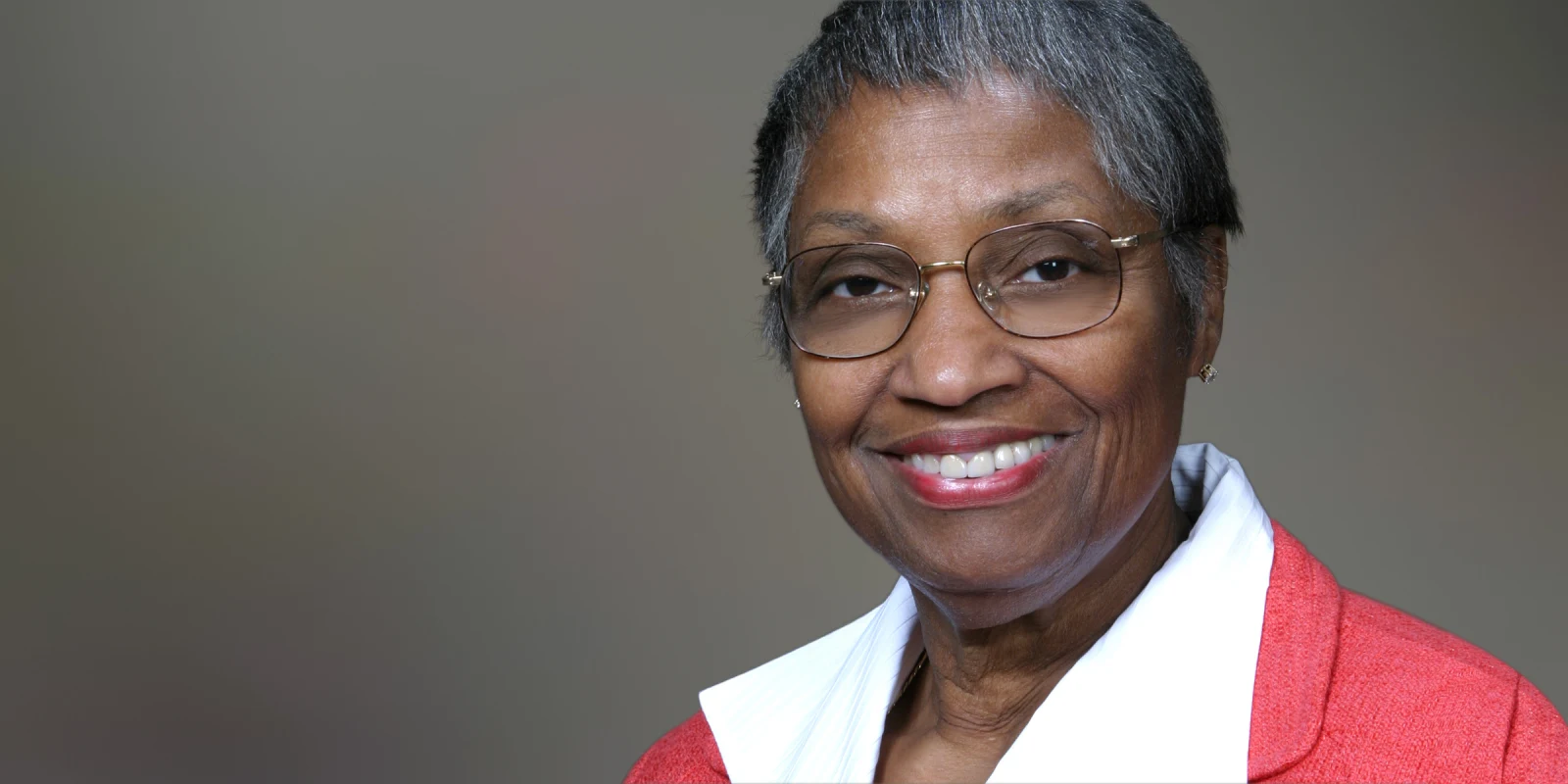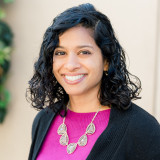Dr. Alexa Canady didn’t grow up wanting to be a physician, let alone the first Black female neurosurgeon in the U.S. She entered the University of Michigan “with the intention of being a mathematician, but my second year I realized I didn't like it. And so I was really lost to be honest,” recalled Dr. Canady. She accepted a paid position as an editor of the university’s student newspaper the summer before her senior year, with the hope of buying a car. When her older brother told her about another paid opportunity, a minority health scholarship program, she applied and was accepted to that as well. Dr. Canady’s summer included science lectures and hands-on time in a human genetics lab, where her love for medicine blossomed. Then, in medical school, she took a two-year interdisciplinary course called neuro-behavioral sciences. “It was the course that I liked the most,” Dr. Canady said. “It was a thing that I could study for fun and enjoy.” In her final year, she completed multiple externships and set her sights on a career in neurosurgery, finishing medical school with honors.
Securing a neurosurgical residency is an arduous task for anyone, and Dr. Canady had no illusions about the challenges ahead; they only fueled her drive. “I was actually a neurosurgery groupie at Michigan. I was at any neurosurgical function or conference that I could go to. I became enough of a presence that they would call on me, and I knew the Michigan neurosurgeons well,”shared Dr. Canady.
Despite this, her residency interview with the University of Michigan Chair consisted of him rattling off a long list of people he had rejected. She knew it was critical to have a supportive chairman, so she accepted a residency at the University of Minnesota instead, after completing an internship at Yale.
On her first day of residency, a high-ranking faculty member said, “Oh, you must be our new equal-opportunity package.” Dr. Canady didn’t miss a beat and replied, “Yeah, I guess I am,” and walked away.
“I think he tried to see if he could rattle people, it was kind of his thing,” Dr. Canady remembered. “What I am is what I am. It doesn't bother me. It was kind of like, OK, you’ve got that kind of problem. And after that we got along fine.”
Dr. Canady achieved her goal of becoming a neurosurgeon in 1981 and went on to become one of the most prominent pediatric neurosurgeons in the country. She is such a renowned figure in the neurosurgery community that when Doximity ran a profile in November 2020 about the first female chief of an academic neurosurgery department, readers wrote in to remind us that Dr. Canady served as chief of neurosurgery at Children’s Hospital in Detroit from 1987–2001.
Dr. Canady didn’t realize the importance of her accomplishments until she started receiving letters from young girls who looked to her as a role model. She has a more nuanced view: “Everybody thinks of it being important for Black girls. But I think it’s even more important for the white kids, because their way into neurosurgery comes through me. If they come through my service, it's not just their world, it’s ours.”
Dr. Canady briefly retired and moved to Pensacola, Florida with her husband, a Navy veteran. She credits her husband as being hugely supportive over her 25-year career. “I think because he's military, his attitude was always, ‘If you have the duty, that's your job, do it,’” she said. Dr. Canady continued to attend pediatric neurosurgery conferences and word soon got out about her relocation. The children’s hospital in Pensacola didn’t have a pediatric neurosurgeon, forcing families to drive five hours to the nearest one. Dr. Canady agreed to work part-time and build up the department. “It was like a nice way to end my career, being just a pure neurosurgeon. I didn't have to administer anything. I didn't have any committee meetings. I didn't have to manage my staff. I just had myself and the kids. And I had experience building a practice.”
After ensuring the pediatric neurosurgery department was up and running, Dr. Canady finally retired — but she hasn’t slowed down. She’s a competitive bridge player and an active member of the Belmont-DeVilliers neighborhood association, a historically Black community. She is also involved with Delta Sigma Theta, a Black service sorority that runs enrichment programs for disadvantaged local children.
Dr. Canady knows that her upper middle-class upbringing made her journey possible. She had support and could choose a career based on her interests without worrying about enormous debt. Everyone she knew went to public schools when she was growing up.
“In those days,” she recalled, “you had to buy your own schoolbooks, and some kids couldn’t afford to. I think that changes your perception of the world. We can’t just think people who don’t have money are poor and lazy.” The educational disparities between affluent kids and children in low-income contexts have only grown. Dr. Canady’s advice: Pay attention to equalizing educational environments so that everyone has the opportunity to compete fairly.
As Dr. Canady reflects on her career, she wouldn’t have done anything differently. “I had bumps along the way,” she shared, “some big ones in college. But I got through and I’d say to young kids that everybody has bumps. When you see them at the end, it looks like it was a straight line. But it wasn't truly a straight line for anybody, it’s just that you don’t have to tell them about the bumps.” Her devotion to her patients has always been unwavering. “A former patient spoke at my retirement celebration, saying, ‘When I came to see you, Dr. Canady, I always knew that you were my doctor and not my parents' doctor,’” she said. “I think that's the thing I'm most proud of.”
How have you transcended obstacles on your journey to medicine?
Which women in medicine would you like to read about? Share your suggestions or nominate someone.







